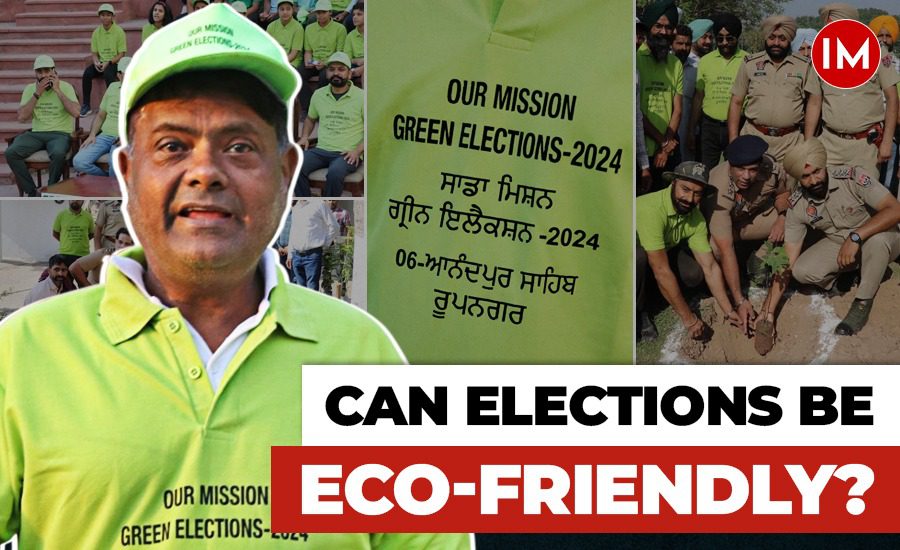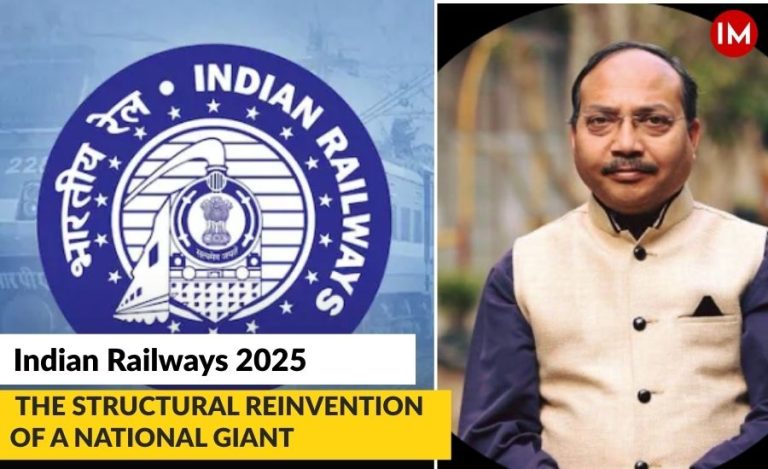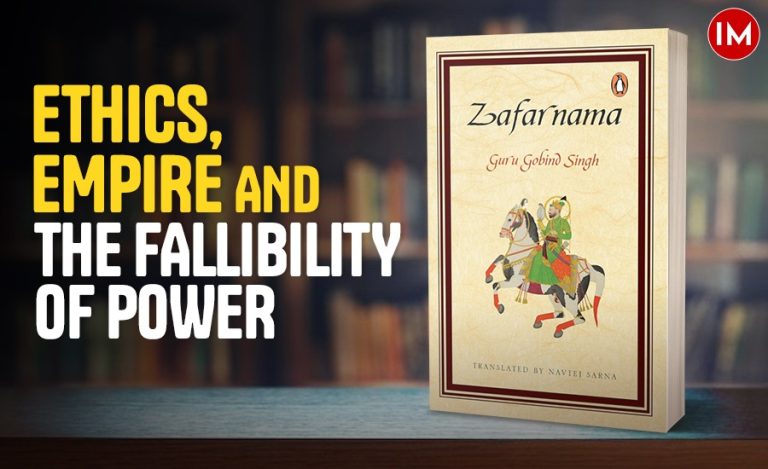In an era where environmental consciousness is more critical than ever, Dr. Heera Lal, the General Observer of Anandpur Sahib constituency in Punjab, spearheads an initiative to conduct “eco-friendly” elections. This innovative approach aims to ensure that the electoral process not only fulfills democratic duties but also aligns with sustainable environmental practices.
In an exclusive conversation with Indian Masterminds, the officer shared details of the practices he is conducting to make the election process ‘green’.
ECO-FRIENDLY ELECTION INITIATIVES
Dr. Heera Lal, currently serving as the Special Secretary in the Irrigation & Water Resources Department of Uttar Pradesh, has implemented a series of green measures to make Anandpur Sahib a model of sustainable elections. These initiatives reflect the Election Commission of India’s directive to ensure environmentally sustainable elections.
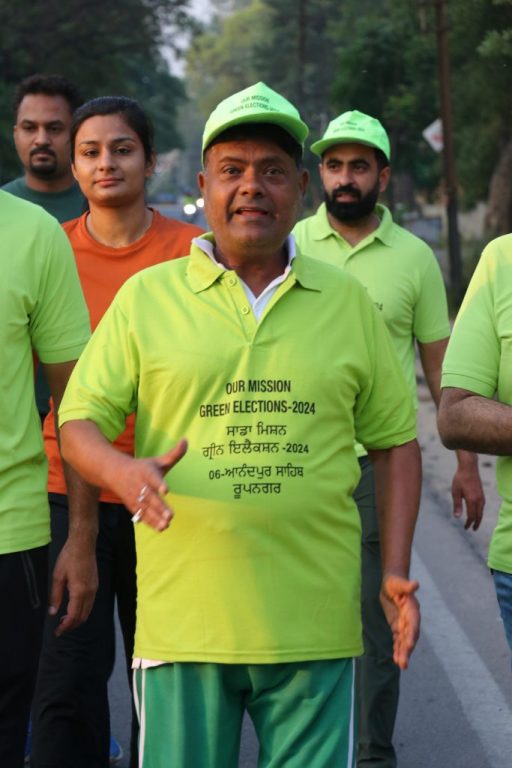
A hallmark of Dr. Lal’s eco-friendly election strategy is the establishment of “Green Booths.” These booths are designed to minimize environmental impact by reducing single-use plastics and incorporating sustainable materials. On polling day, voters will receive saplings as a token of appreciation for their participation, encouraging them to plant these trees and contribute to a greener environment.
“First and foremost, we instilled the idea of a green election in the hearts and minds of people, as before implementing an idea, it is necessary to instill it in the common public’s mind. If somehow we reduce the production of greenhouse gasses produced during elections, it will not be great for the environment in the long run, which is why we try to convince people to plant trees,” he shared.
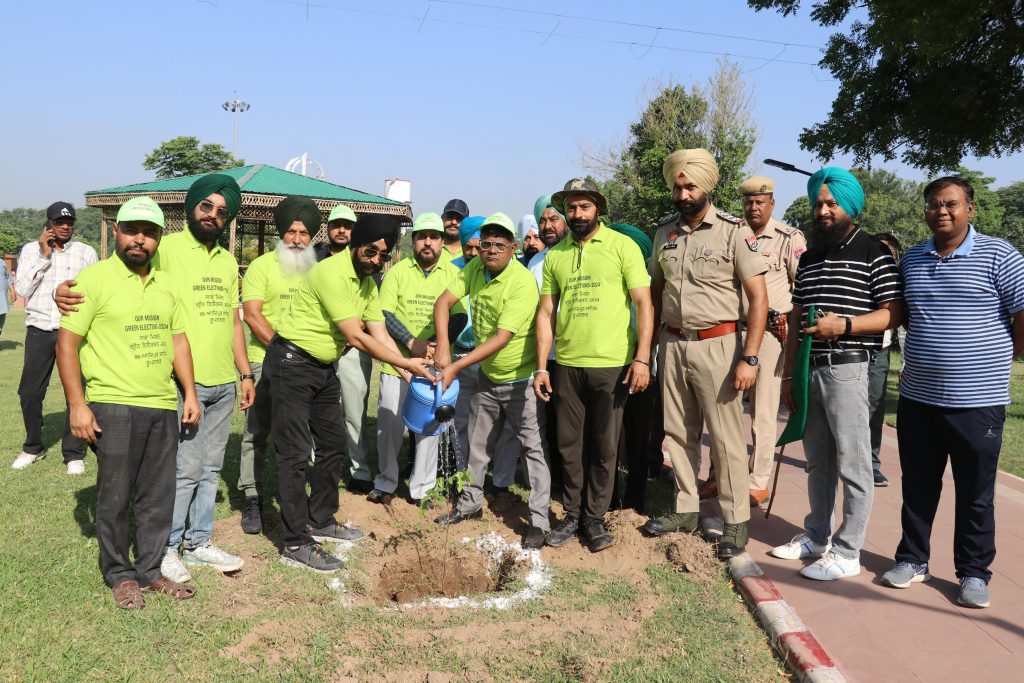
DETAILED PLANNING AND COORDINATION
Dr. Lal’s comprehensive approach includes meticulous planning and collaboration with various stakeholders. He held a pivotal meeting with district election officers, police representatives, returning officers, and other key officials to outline the green election blueprint. This collaborative effort ensures that all involved parties are committed to the cause.
“Green elections comprise activities that we organize and awareness that we raise in order to conduct eco-friendly elections. Through election processes and activities, greenhouse gases are generated on a large scale. Through our green elections, we try to minimize the production of these gases or offset them through tree plantations. We motivate the general public and all the constituencies to adopt green elections and plant trees on the auspicious voting day,” he told Indian Masterminds.
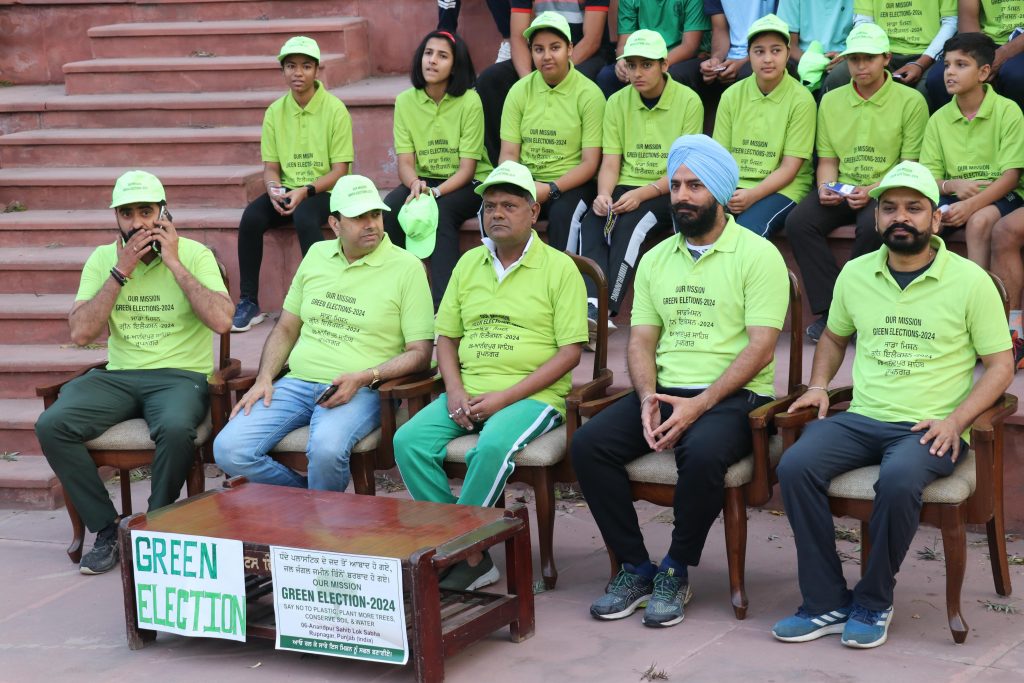
WASTE MANAGEMENT AND MINIMIZATION
One of the significant aspects of the green election plan is effective waste management. Dr. Lal has emphasized the importance of segregating waste at polling stations and campaign events.
Clear signage and separate collection bins for recyclables, organic waste, and non-recyclables are being implemented to facilitate proper disposal and recycling. Partnerships with local waste management companies ensure that the collected waste is processed responsibly.
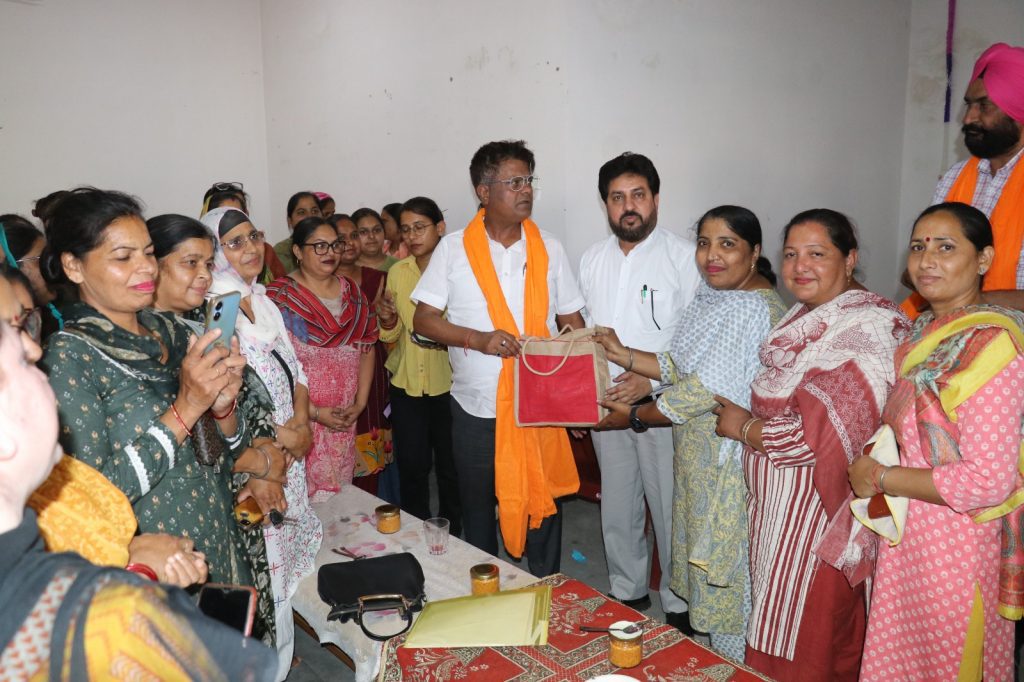
MINIMIZING PAPER USAGE
To further reduce the environmental footprint, the election process in Anandpur Sahib is minimizing paper usage. This includes adopting electronic methods for voter lists, electoral materials, and communication. Election staff are encouraged to use eBooks and digital documents, significantly cutting down on paper consumption.
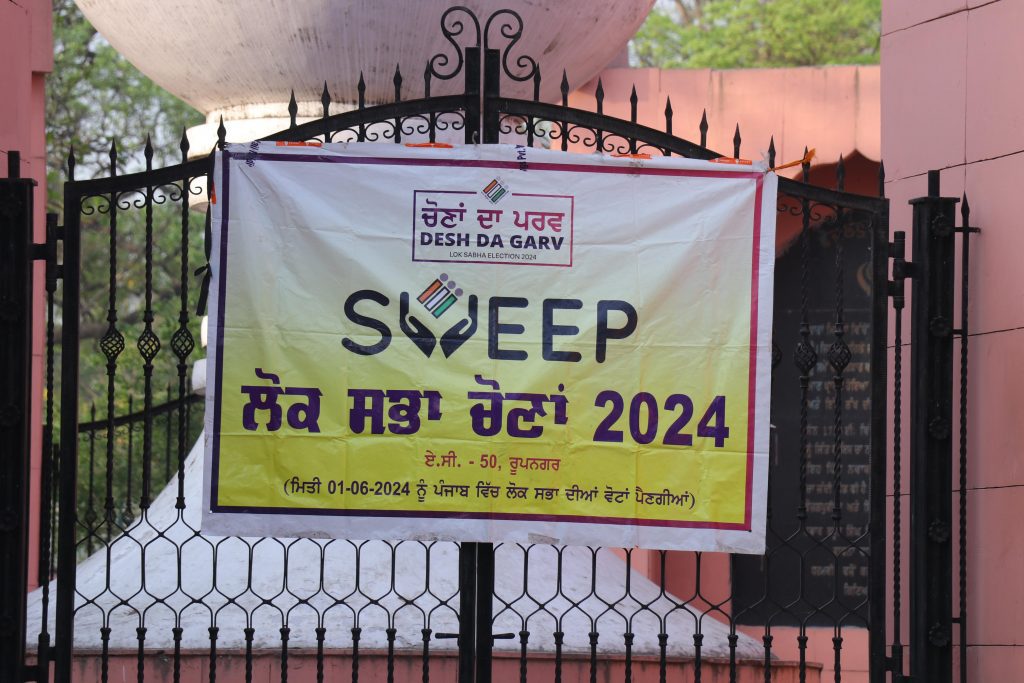
FUEL REDUCTION MEASURES
In a bid to reduce carbon emissions, Dr. Lal promotes the use of eco-friendly vehicles for transportation during the election period. Encouraging carpooling, public transportation, and the use of renewable energy sources for campaign events are key components of this initiative.
Additionally, consolidating polling locations aims to reduce travel distances for both voters and election officials.
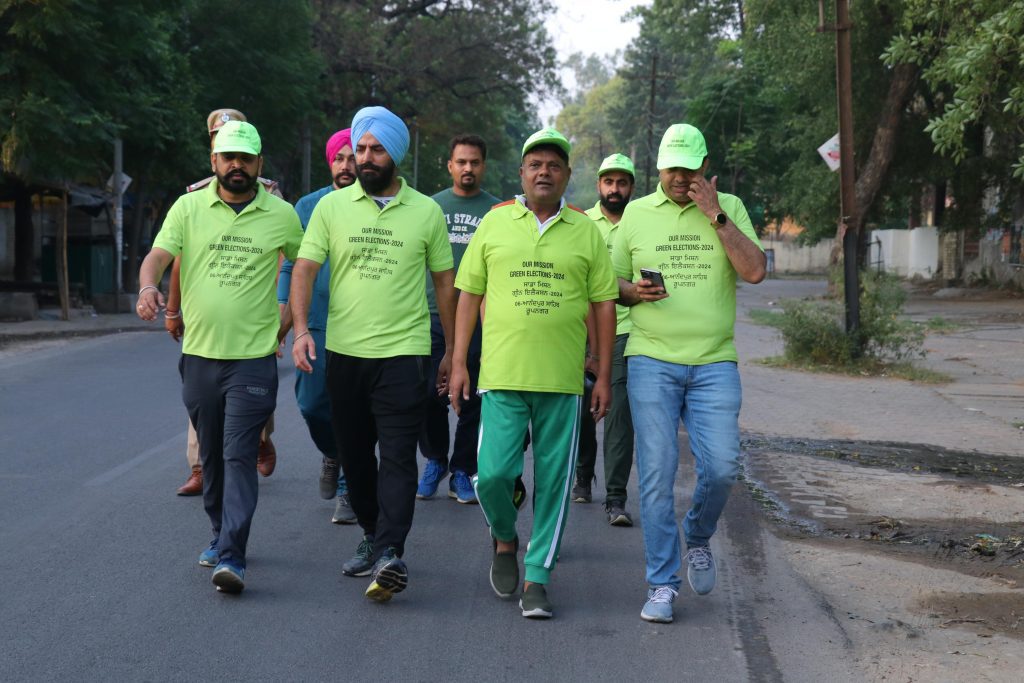
ENGAGING THE COMMUNITY
Dr. Lal’s green election strategy is not limited to logistical changes; it also involves extensive community engagement. He has conducted awareness campaigns to educate voters about the importance of eco-friendly practices. Collaborations with local authorities, NGOs, and community groups play a crucial role in promoting environmental responsibility during the elections.
“I want to embed green elections in the heart, minds, and body of people to give our mother Earth a break from the climate change and heatwave that’s been going across the country,” stated Dr. Lal.
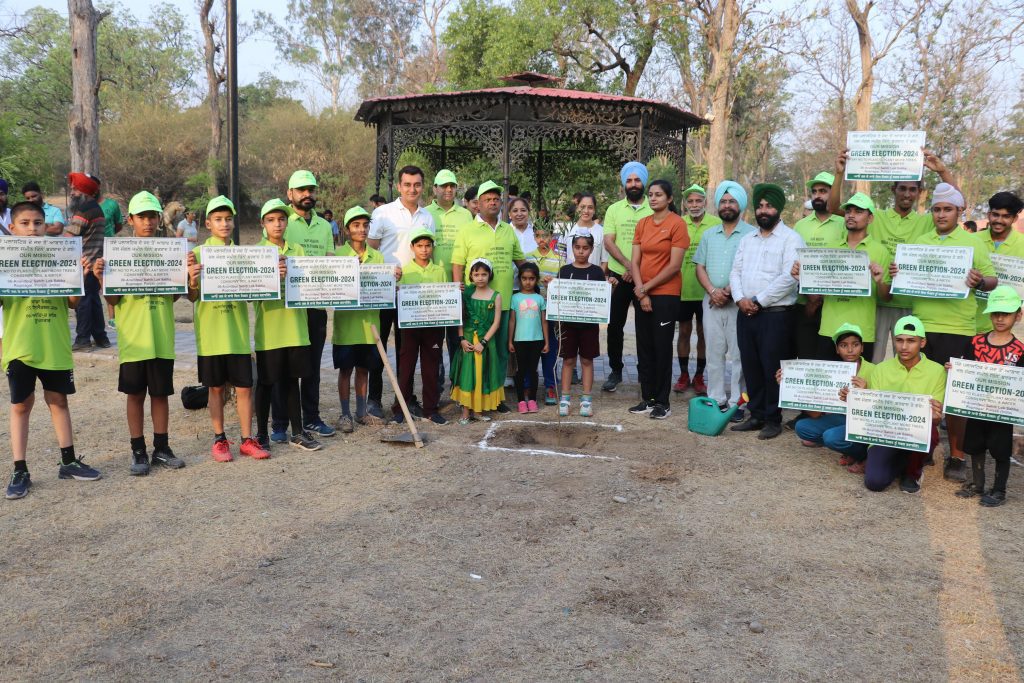
TRAINING AND AWARENESS FOR ELECTION OFFICIALS
Training programs for election officials now include environmental awareness modules. These programs emphasize the importance of adhering to eco-friendly practices and encourage officials to act as ambassadors for green elections. This ensures that the commitment to sustainability is upheld at every level of the election process.
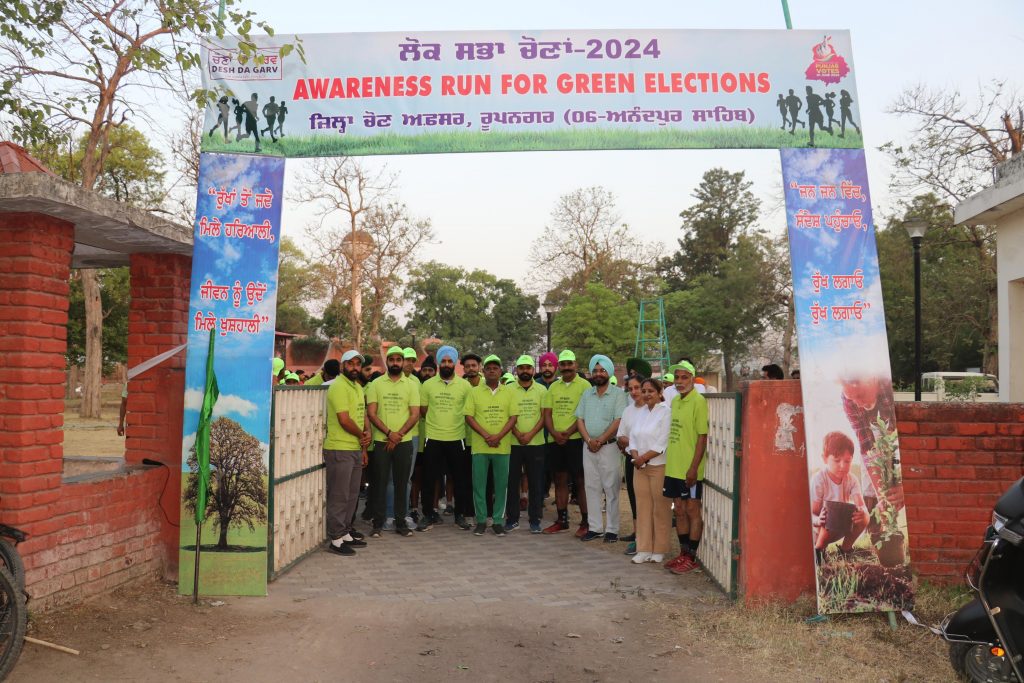
ENCOURAGING DIGITAL CAMPAIGNS
Dr. Lal has also urged political parties and candidates to embrace digital platforms for their campaigns. By using e-vehicles, digital newsletters, and social media, they can significantly reduce their reliance on physical materials and traditional mailers.
“This shift not only reduces waste but also promotes a modern, sustainable approach to election campaigning.”
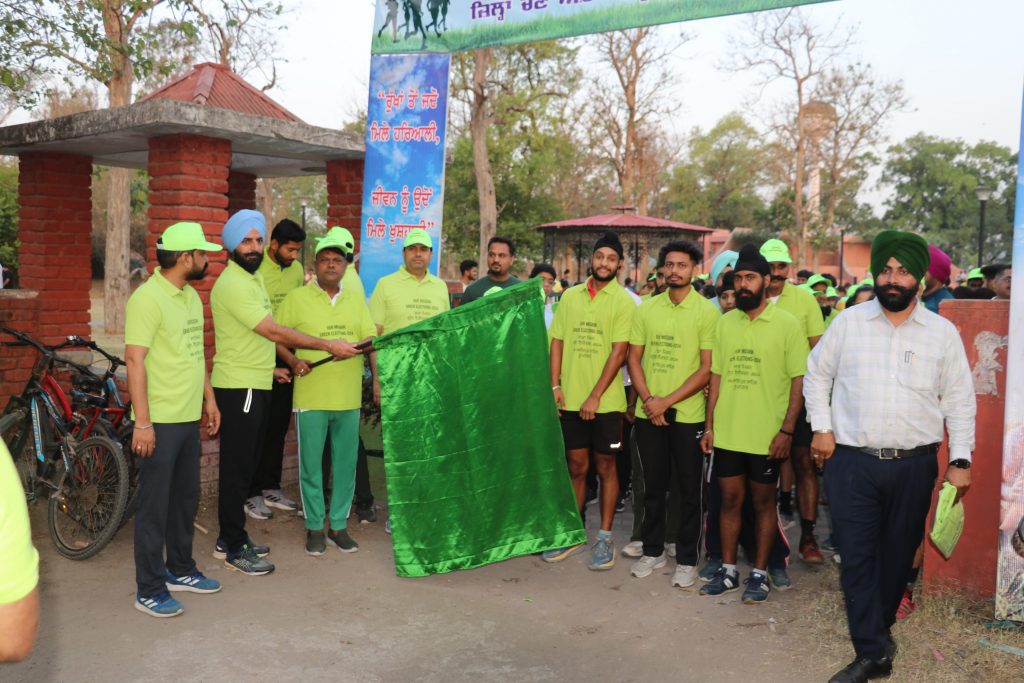
ACHIEVEMENTS AND IMPACT
Dr. Lal’s efforts have already seen tangible results. Over 5,000 saplings have been distributed to voters, fostering a culture of environmental stewardship.
The comprehensive waste management strategy, reduced paper usage, and fuel-saving measures collectively contribute to a significant reduction in the election’s environmental impact.
The green election initiative in Anandpur Sahib, led by Dr. Heera Lal, sets a remarkable precedent for sustainable electoral practices. By integrating eco-friendly measures into every aspect of the election process, Dr. Lal is not only ensuring a fair and transparent election but also paving the way for future elections to be conducted in an environmentally responsible manner. This innovative approach demonstrates that, with thoughtful planning and community involvement, elections can be both democratic and green.

